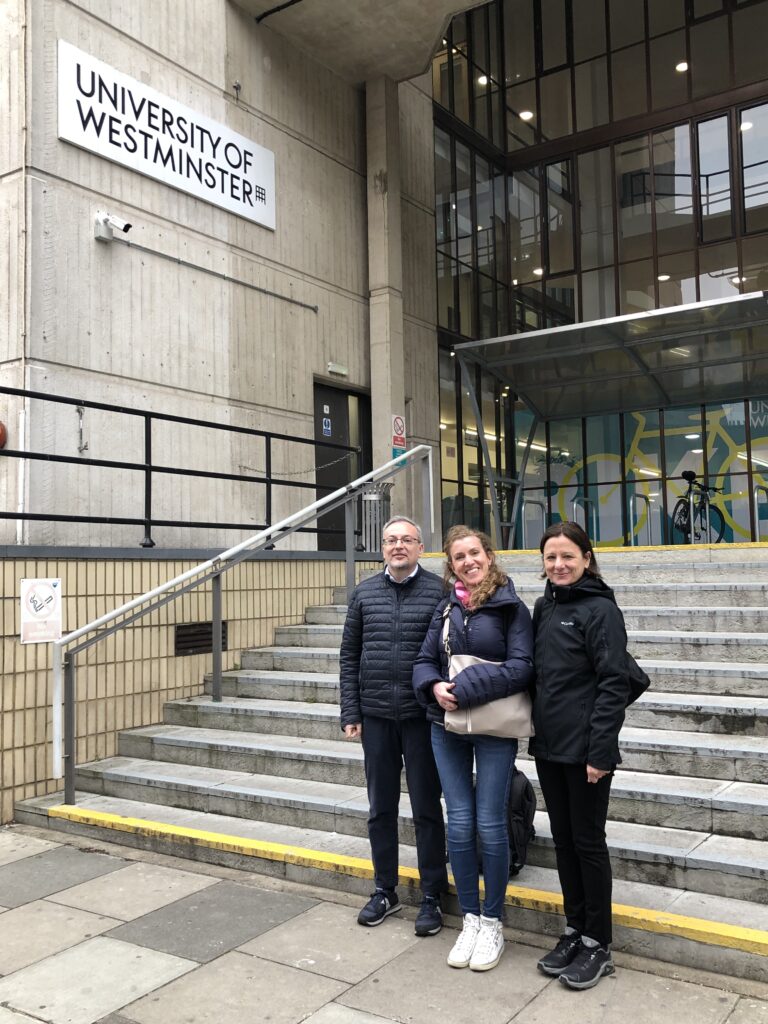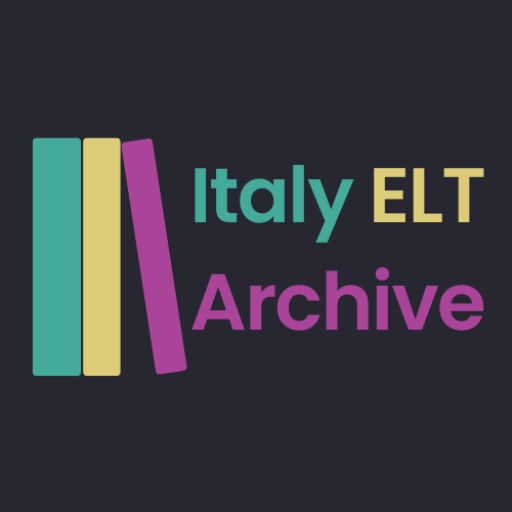On 19 April 2024, the Annual Colloquium of the Henry Sweet Society took place a the University of Westminster, 115 New Cavendish Street, London, and it was attended by members of the Society both in person and online. This one-day international event explored the history of linguistic ideas from multiple perspectives, and it involved nine paper presentations delivered by researchers from various fields of interest (language learning and teaching, translation, lexicography, grammaticography, etc.), focusing on a variety of languages and socio-cultural backgrounds.
After the opening address given by the President of the Society, Prof. Andrew Linn (University of Westminster), Luciana Pedrazzini, Andrea Nava, and Emanuela Tenca (University of Milan) described the design and implementation of the Italy ELT Archive. By highlighting two case studies, namely the coursebooks Corso di Lingua Inglese Moderna (Hazon 1933) and Got the Message? (Elviri et al. 1982), Pedrazzini, Nava, and Tenca discussed the local take-up and adaptation of language teaching methods in Italy in different periods of the 20th Century, while discussing challenges in cataloguing primary sources for the purposes of a digital archive.
The second speaker, Ute Tintemann (Berlin-Brandenburgische Akademie der Wissenschaften) examined Friedrich Gedike’s (1754-1803) production of textbooks for teaching reading to beginners, which resulted from his reflections on the process of language learning.
The third paper was presented by Patricia Ashby (University of Westminster) and Michael Ashby (University College, London), who talked the audience through the origin and development of the IPA Exam up to its withdrawal in 2023, stressing how the history of this examination intersects the history of English itself.
The fourth speaker, Maria Laura Pierucci (University of Macerata), situated her talk in 18th Century Italy by presenting the figure of Maria Gaetana Agnesi (1718-1799), the first female author to write a book to teach mathematics. In her presentation, Pierucci underscored how Agnesi’s writing was informed by metalinguistic reflections on the use of Italian for the purposes of knowledge dissemination.
The fifth speaker, Floris Solleveld (University of Bristol) took the audience of the Colloquium to a journey to 19th Century Dutch East Indies to problematise missionary translation. The talk focused on Herman Neubronner van der Tuuk (1824-1894), known for his polemic and irascible nature, and his predecessor, J.F.C. Gericke (1798-1857), who instead was known for being pious and deferential. Solleveld explored challenges in translating the Bible into the languages spoken on the Indonesian archipelgo at the time, for example underscoring issues in choosing the appropriate register.
In the sixth presentation in the Colloquium, Aimée Lahaussois (CNRS/Université Paris Cité) took the discussion to 19th Century Eastern Nepal to investigate the vocabulaires of Kiranti languages compiled by the naturalist Brian Houghton Hodgson (1800-1894), who with his work contributed to natural history, religion studies, and linguistic ethnology.
Raúl Aranovich (UC Davis) gave the seventh presentation of the day by exploring Michael Halliday’s (1925-2018) and Henry Frei’s (1899-1980) convergence on Chinese ergative constructions. By providing a vast arry of examples, Aranovich explained what made this convergence possible, thus highlighting implications for linguistics as a science.
The eight speaker, Jean-Pierre Gabilan (Université Savoie Mont Blanc) called into question the way in which grammar has been presented over time, advocating for a more systematic approach to its teaching by means of meta-operational grammar.
The final presentation of the day was given by John Joseph ( University of Edinburgh) who outlined the origins of Scottish linguistics in the 1940s stressing the role of John Orr (1885-1966), a professor of French linguistics, who is well known, among other things, for its contribution to the study of linguistic taboos.
The 2024 Colloquium offered plenty of food for thought to its diverse audience, while presenting invaluable opportunities for engaging in fruitful discussions regarding the history of linguistic ideas from various standpoints.
The Colloquium of the Henry Sweet Society is organised once a year, either as a three-day event in late August/early September, or a one-day event, usually in April, in those years when the International Conference on the History of the Language Sciences (ICHoLS) gathers, as is the case in 2024. The Colloquium is held in conjunction with the Annual General Meeting of the Society.

From left to right: Andrea Nava, Emanuela Tenca, and Luciana Pedrazzini at the University of Westminster on 19 April 2024 (photo credits: Maria Laura Pierucci/ Emanuela Tenca)
